Services
PeriShip may interact with all of the stakeholders in a shipping transaction, which include a shipper of perishable goods, a recipient of perishable goods, and an agency responsible for delivering the perishable goods to the recipient. Its purpose in this interaction is to decrease the time each party must spend on a transaction, which increases business productivity and decreases cost of the shipper and the transportation agency. [1] [2]
On the pre-transaction side, PeriShip places emphasis on proper packaging techniques to ensure integrity of perishable shipments. [3] [4] It also offers web services to both commercial and open-source shopping cart vendors which allows shippers to quote a PeriShip shipping rate to a customer before they buy. [5] [6]
During shipment, PeriShip processes data from FedEx and interprets this data in the form of customized communication, such as regular emails, on the status of the package. [1] [7] It also monitors weather and flight conditions and reports on adverse conditions to the shipper. [1] [3]
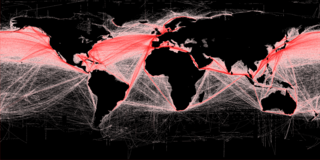
Freight transport, also referred as freight forwarding, is the physical process of transporting commodities and merchandise goods and cargo. The term shipping originally referred to transport by sea but in American English, it has been extended to refer to transport by land or air as well. "Logistics", a term borrowed from the military environment, is also used in the same sense.
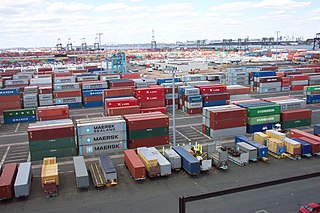
Containerization is a system of intermodal freight transport using intermodal containers. Containerization, also referred as container stuffing or container loading, is the process of unitization of cargoes in exports. Containerization is the predominant form of unitization of export cargoes, as opposed to other systems such as the barge system or palletization. The containers have standardized dimensions. They can be loaded and unloaded, stacked, transported efficiently over long distances, and transferred from one mode of transport to another—container ships, rail transport flatcars, and semi-trailer trucks—without being opened. The handling system is mechanized so that all handling is done with cranes and special forklift trucks. All containers are numbered and tracked using computerized systems.

Logistics is the part of supply chain management that deals with the efficient forward and reverse flow of goods, services, and related information from the point of origin to the point of consumption according to the needs of customers. Logistics management is a component that holds the supply chain together. The resources managed in logistics may include tangible goods such as materials, equipment, and supplies, as well as food and other consumable items.
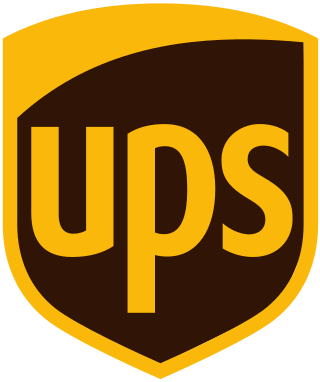
United Parcel Service, Inc. (UPS) is an American multinational shipping & receiving and supply chain management company founded in 1907. Originally known as the American Messenger Company specializing in telegraphs, UPS has grown to become a Fortune 500 company and one of the world's largest shipping couriers. UPS today is primarily known for its ground shipping services as well as the UPS Store, a retail chain which assists UPS shipments and provides tools for small businesses. UPS offers air shipping on an overnight or two-day basis and delivers to post office boxes through UPS Mail Innovations and UPS SurePost, two services that pass on packages to the United States Postal Service for last-mile delivery.

In transportation, freight refers to goods conveyed by land, water or air, while cargo refers specifically to freight when conveyed via water or air. In economics, freight refers to goods transported at a freight rate for commercial gain. The term cargo is also used in case of goods in the cold-chain, because the perishable inventory is always in transit towards a final end-use, even when it is held in cold storage or other similar climate-controlled facilities, including warehouses.

Cross-docking is a logistical practice of Just-In-Time Scheduling where materials are delivered directly from a manufacturer or a mode of transportation to a customer or another mode of transportation. Cross-docking often aims to minimize overheads related to storing goods between shipments or while awaiting a customer's order. This may be done to change the type of conveyance, to sort material intended for different destinations, or to combine material from different origins into transport vehicles with the same or similar destinations.

A receipt is a document acknowledging that a person has received money or property in payment following a sale or other transfer of goods or provision of a service. All receipts must have the date of purchase on them. If the recipient of the payment is legally required to collect sales tax or VAT from the customer, the amount would be added to the receipt, and the collection would be deemed to have been on behalf of the relevant tax authority. In many countries, a retailer is required to include the sales tax or VAT in the displayed price of goods sold, from which the tax amount would be calculated at the point of sale and remitted to the tax authorities in due course. Similarly, amounts may be deducted from amounts payable, as in the case of taxes withheld from wages. On the other hand, tips or other gratuities that are given by a customer, for example in a restaurant, would not form part of the payment amount or appear on the receipt.
Drop shipping is a form of retail business in which the seller accepts customer orders without keeping stock on hand. Instead, in a form of supply chain management, the seller transfers the orders and their shipment details either to the manufacturer, a wholesaler, another retailer, or a fulfillment house, which then ships the goods directly to the customer.

CMA CGM is a French shipping and logistics company founded in 1978 by Jacques Saadé.

A freight rate is a price at which a certain cargo is delivered from one point to another. The price depends on the form of the cargo, the mode of transport, the weight of the cargo, and the distance to the delivery destination. Many shipping services, especially air carriers, use dimensional weight for calculating the price, which takes into account both weight and volume of the cargo.
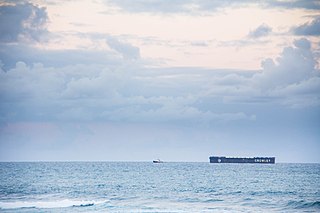
Crowley, legally Crowley Maritime Corporation, is based in Jacksonville, Florida. Founded in 1892, Crowley is primarily a family- and employee-owned vessel management, owner, and supply chain logistics services company, providing services globally. As of July 2016, Crowley was ranked as the 13th largest private company in Florida, employing approximately 5,300 people worldwide with revenues of $2.2 billion. It provides its services using a fleet of more than 300 vessels, consisting of RO-RO vessels, LO-LO vessels, tankers, Articulated Tug-Barges (ATBs), tugs and barges. Crowley's land-based facilities and equipment include terminals, warehouses, tank farms, and specialized vehicles.
A freight forwarder or forwarding agent is a person or a company who co-ordinates and organizes the movement of shipments on behalf of a shipper by liaising with carriers. The carriers may use a variety of shipping modes, including ships, airplanes, trucks, and railroads, and often use multiple modes for a single shipment. A freight forwarder does not move the goods but acts as an agent in the logistics network and will carry out freight consolidation, rate negotiations, shipment tracking, customs and other documentation, among other tasks. FIATA describes a freight forwarder as the "Architect of transport".

ORM-D was a marking for mail or shipping in the United States. Packages bearing this mark contained hazardous material in a limited quantity that present a limited hazard during transportation, due to its form, quantity, and packaging. ORM-D was phased out by the US Department of Transportation on January 1, 2021.
A shipping agency, shipping agent, or ship agency is the term used to refer to the appointed companies that handle operational and procedural (legal) requirements for a commercial vessel's call at a port for the purposes of cargo handling (loading/discharging), emergency calls, repairs, crew changes, or ship demolition, and protect the general interests of their principals on behalf of ship owners, disponent owners, or charterers in an objective manner.
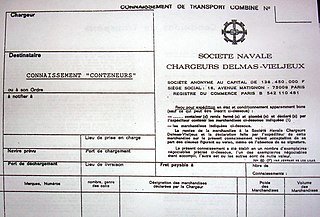
A bill of lading is a document issued by a carrier to acknowledge receipt of cargo for shipment. Although the term is historically related only to carriage by sea, a bill of lading may today be used for any type of carriage of goods. Bills of lading are one of three crucial documents used in international trade to ensure that exporters receive payment and importers receive the merchandise. The other two documents are a policy of insurance and an invoice. Whereas a bill of lading is negotiable, both a policy and an invoice are assignable. In international trade outside the United States, bills of lading are distinct from waybills in that the latter are not transferable and do not confer title. Nevertheless, the UK Carriage of Goods by Sea Act 1992 grants "all rights of suit under the contract of carriage" to the lawful holder of a bill of lading, or to the consignee under a sea waybill or a ship's delivery order.
A freight claim or cargo claim is a legal demand by a shipper or consignee against a carrier in respect of damage to a shipment, or loss thereof.

Freightos operates a booking and payments platform for international freight, using a SaaS-Enabled Marketplace model. It also provides rate management and quoting software for freight forwarders and carriers through WebCargo, a subsidiary acquired in 2016
FreightCenter is a privately owned, non-asset based 3rd-party logistics provider (3PL) with headquarters in Palm Harbor, FL. FreightCenter acts as a conduit between freight carriers and commercial or residential shippers located in the United States and Canada. As a conduit, shippers use the provider's online freight quote calculator to calculate freight costs for less than truckload, truckload, rail, ocean and air freight.
Haven Inc. is a company that automates logistics for ocean freight companies. Based in Singapore, San Francisco and Basel, it manages a freight rate and logistics for large international supply chains. Haven is considered one of the pioneers of the digital revolution in shipping logistics.
The freight technology sector, also known as FreightTech, refers to software companies and technologies which assist in supply chain management and the movement of freight. In the five years following 2014, investment in FreightTech companies grew from $118 million to $3 billion per year.













